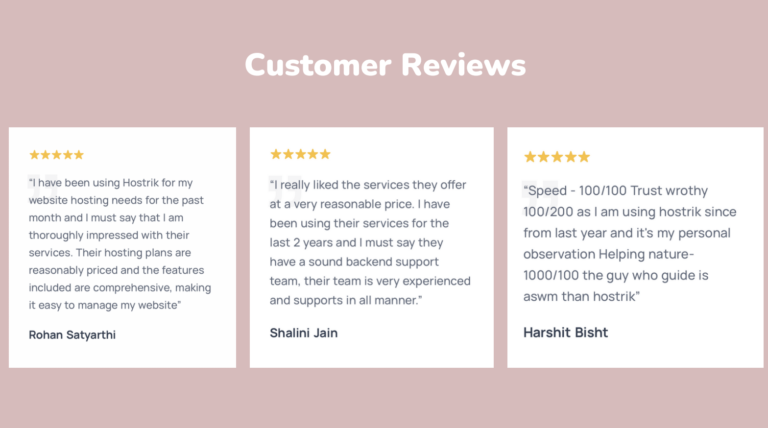7 ways to Maximise Web Hosting ideas for Digital Marketers: Improve Your Online Presence
Introduction
In today’s digital era, web hosting plays a crucial role in the success of digital marketers. The right web hosting solution not only ensures your website is accessible and secure but also contributes to its overall performance, speed, and search engine visibility. In this blog post, we will delve into the world of web hosting for digital marketers, uncovering key considerations, features, and benefits that can empower your online presence. Whether you’re a seasoned marketer or just starting out, understanding the importance of web hosting will enable you to make informed decisions and drive your digital marketing efforts to new heights.

Content
Table of Contents:
- The Role of Web Hosting in Digital Marketing
Web hosting is the foundation of your digital marketing strategy. It is the process of storing your website’s files on a server and making them accessible to users worldwide. Let’s explore the key roles web hosting plays in digital marketing:
a. Website Accessibility: A reliable web hosting service ensures your website is available to visitors around the clock. Downtime or slow loading speeds can lead to frustrated users and missed opportunities.
b. Website Performance: Fast-loading websites have a better chance of engaging users and improving conversion rates. A robust web hosting solution with optimized server configurations and ample resources can enhance website performance.

c. Search Engine Visibility: Search engine optimization (SEO) is vital for digital marketers. Web hosting can impact SEO through factors like page loading speed, server location, SSL certificates, and uptime. Choose a hosting provider that prioritizes these aspects.
- Essential Features for Digital Marketers
When selecting a web hosting provider, digital marketers should consider specific features that align with their goals and requirements. Here are some essential features to look for:
a. Scalability: As your digital marketing efforts grow, your website’s traffic and resource needs will increase. A scalable hosting solution allows you to easily upgrade your resources to accommodate these changes.
b. Content Management Systems (CMS) Support: CMS platforms like WordPress, Drupal, or Joomla are popular among digital marketers. Ensure your hosting provider supports your chosen CMS and provides seamless integration.
c. Email Hosting: Having a professional email address with your domain name adds credibility to your digital marketing efforts. Look for web hosting plans that offer reliable email hosting services.
d. E-commerce Support: If you’re running an online store or selling products/services, ensure your hosting provider supports e-commerce functionality, including secure payment gateways and SSL certificates.

e. Data Backup and Security: Protecting your data is crucial. Choose a hosting provider that offers regular data backups, robust security measures, and options for SSL certificates to secure sensitive information.
f. Content Delivery Network (CDN): A CDN improves website loading speed by delivering content from servers closest to the user’s location. Look for hosting plans that include a CDN or offer easy integration with third-party CDNs.
g. Analytics and Reporting: Monitoring your website’s performance is essential. Hosting providers that offer built-in analytics or integration with popular tracking tools can provide valuable insights for your digital marketing campaigns.
- Types of Web Hosting: Which One Fits Your Needs?
When choosing a web hosting solution, it’s essential to understand the different types available and select the one that aligns with your specific needs. Let’s explore the most common types of web hosting:
a. Shared Hosting: Ideal for beginners and small-scale digital marketers, shared hosting involves multiple websites sharing resources on a single server. It is cost-effective but may have limitations in terms of performance and security.
b. Virtual Private Server (VPS) Hosting: With VPS hosting, you have dedicated resources within a shared server environment. It offers better performance and scalability compared to shared hosting, making it suitable for growing digital marketing needs.
c. Dedicated Server Hosting: In dedicated server hosting, you have an entire server dedicated solely to your website. This option provides maximum performance, control, and security but comes at a higher cost.
d. Cloud Hosting: Cloud hosting utilizes multiple servers working together to host websites. It offers scalability, flexibility, and high uptime, making it an excellent choice for digital marketers with varying traffic levels and resource requirements.

e. Managed WordPress Hosting: Designed specifically for WordPress websites, managed WordPress hosting offers optimized performance, automatic updates, enhanced security, and expert WordPress support.
f. Reseller Hosting: Reseller hosting allows digital marketers to resell hosting services to their clients. It provides an opportunity to generate additional revenue by offering web hosting as part of your digital marketing services.
- Factors to Consider When Choosing a Web Hosting Provider
Choosing the right web hosting provider is crucial for the success of your digital marketing efforts. Here are some key factors to consider when making your decision:
a. Reliability and Uptime: A reliable hosting provider ensures your website is available to visitors at all times. Look for providers that offer uptime guarantees of 99.9% or higher.
b. Speed and Performance: Fast-loading websites provide a better user experience and contribute to higher search engine rankings. Choose a hosting provider that utilizes SSD storage, advanced caching techniques, and optimized server configurations for improved performance.
c. Scalability and Resource Allocation: As your digital marketing efforts expand, your website’s traffic and resource needs will increase. Ensure your hosting provider offers scalable plans and allows easy upgrades as per your requirements.
d. Server Location: The geographic location of your hosting server can affect website loading times. If your target audience is concentrated in a specific region, choose a hosting provider that has servers located closer to your target market.
e. Security Measures: Protecting your website and customer data is paramount. Look for hosting providers that offer robust security measures, including firewalls, DDoS protection, malware scanning, and SSL certificates.
f. Backup Solutions: Regular backups of your website’s data are essential in case of accidental data loss or system failures. Choose a hosting provider that offers automated backup solutions or allows manual backups.
g. Technical Support: Prompt and reliable customer support is crucial, especially during times of technical issues or emergencies. Ensure your hosting provider offers multiple support channels and has knowledgeable support staff available 24/7.
h. Reputation and Reviews: Research the hosting provider’s reputation and read customer reviews to gauge their reliability, customer satisfaction levels, and overall performance.
i. Pricing and Value for Money: Compare the pricing and features offered by different hosting providers. Remember to consider the value you are getting for your investment, including the features, performance, and support offered.
- Optimizing Website Performance for SEO
Website performance is closely tied to search engine optimization (SEO) and can significantly impact your digital marketing efforts. Here are some key aspects to consider when optimizing your website for better performance:
a. Page Loading Speed: Slow-loading websites can negatively impact user experience and SEO rankings. Optimize your website’s loading speed by compressing images, minimizing code, leveraging browser caching, and utilizing content delivery networks (CDNs).
b. Mobile Responsiveness: With the increasing use of mobile devices, having a mobile-responsive website is crucial. Ensure your website design adapts to different screen sizes and provides a seamless user experience across devices.
c. Optimized Content and Metadata: Ensure your website’s content is well-structured, easily readable, and optimized with relevant keywords. Use descriptive metadata, including title tags, meta descriptions, and header tags, to improve search engine visibility.
d. URL Structure: Create search engine-friendly URLs that are descriptive, concise, and include relevant keywords. Avoid using long and complex URLs that may confuse search engines and users.
e. Minimize Plugins and Scripts: Excessive use of plugins and scripts can slow down your website. Only use essential plugins and scripts and regularly review and optimize their performance.
f. Crawlability and Indexability: Ensure search engines can easily crawl and index your website. Create a sitemap, utilize robots.txt files to control access, and fix any crawl errors reported in search console tools.
g. Content Delivery Networks (CDNs): CDNs help distribute your website’s content across multiple servers worldwide, reducing latency and improving loading speeds for users in different locations. Consider integrating a CDN with your web hosting solution.
h. SSL Certificate: Implementing an SSL certificate not only enhances website security but also improves search engine rankings. It enables secure data transmission between your website and visitors’ browsers.

- Security Considerations for Digital Marketers
Digital marketers need to prioritize website security to protect their valuable data and maintain customer trust. Here are some key security considerations:
a. Secure Hosting Environment: Choose a hosting provider that offers robust security measures, including firewalls, intrusion detection systems, regular security updates, and malware scanning.
b. SSL Certificates: Implement an SSL certificate to encrypt data transmission between your website and users’ browsers. This ensures secure communication and builds trust with your audience.
c. Regular Updates and Patches: Keep your website’s CMS, plugins, and themes up to date with the latest security patches. Regularly update your website to mitigate potential vulnerabilities.
d. Strong Passwords and User Authentication: Use strong, unique passwords for your website’s admin accounts and encourage your team members to do the same. Implement multi-factor authentication (MFA) to add an extra layer of security.
e. Regular Backups: Perform regular backups of your website’s data and store them securely in off-site locations. In case of a security breach or data loss, backups can help restore your website quickly.
f. Security Audits and Monitoring: Conduct periodic security audits to identify vulnerabilities and proactively address them. Implement monitoring systems to detect and respond to security threats in real-time.
g. User Permissions and Access Control: Restrict access to sensitive areas of your website. Assign appropriate user permissions to prevent unauthorized access and potential security breaches.
h. Data Protection and Privacy: Comply with data protection regulations and prioritize the privacy of your website visitors. Implement a privacy policy, obtain consent for data collection, and ensure secure storage and transmission of user data.
- Customer Support: A Crucial Aspect for Success
Digital marketers rely on prompt and reliable customer support from their hosting provider. Consider the following aspects when evaluating customer support:
a. 24/7 Availability: Technical issues can occur at any time, so ensure your hosting provider offers round-the-clock support via various channels like live chat, email, and phone.

b. Response Time: Check the average response time for support queries. A quick response can help resolve issues promptly and minimize downtime.
c. Knowledgeable Support Staff: Competent and knowledgeable support staff can provide effective solutions to technical problems. Look for hosting providers with a reputation for skilled support teams.
d. Support Documentation and Resources: Access to a comprehensive knowledge base, tutorials, and FAQs can help you troubleshoot common issues independently. Check if your hosting provider offers these resources.
e. Community Forums and User Groups: Engaging with a community of fellow digital marketers can provide valuable insights, tips, and solutions. Check if your hosting provider offers forums or user groups where you can connect with others in the industry.
Conclusion
In conclusion, web hosting is a critical component of a successful digital marketing strategy. By selecting the right web hosting provider and considering essential features, types of hosting, factors, website optimization for SEO, security measures, and customer support, digital marketers can enhance their online presence, improve website performance, and ensure a secure and reliable online experience for their audience.
Follow for more: Hostrik
To explore the hosting options provided by Hostrik and find the perfect solution for your digital marketing needs, visit their hosting plans and pricing page.






